Social unrest
will remain a prominent theme in the remaining months of 2012.
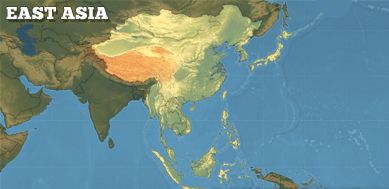
East Asia
Transition in China
The key feature the next 3 months for China and East Asia will be:
transition. The basic geopolitical structure of East Asia is beginning to shift
as China -- the region's core power -- passes into a new political and economic
phase marked by slower economic growth, rising social pressures related to
unemployment and inequality, and intensified divisions within the Communist
Party.
Fears that the Chinese economy would experience a sharp slowdown in 2012
have now been fulfilled. In the fourth quarter, growth rates for most key
indicators will continue to slow on a year-on-year basis, weighed down by
uncertainty in Europe and underwhelming domestic consumption, as well as the
resulting decline in industrial activity and demand for raw materials and
resources. Beijing will work to maintain economic stability and employment
through increased investment in large-scale infrastructure projects that
particularly focus on expanding transport and power generation capacity in
China's still-underdeveloped interior. Property markets will also get a boost
as the central government moves to reduce inventories by spurring growth and
investment at the local level.
A seasonal bump in both international and domestic consumer demand will
likely give a temporary boost to China's export sector, which could soften
unemployment pressure in the next quarter. Meanwhile, Beijing will work to
boost domestic consumption through a combination of traditional short-term
solutions like direct subsidies on consumer goods and moderate reforms to
income distribution across state-owned enterprises. Ultimately, however, the
central government will likely eschew any move that could exacerbate
instability down the road, preferring instead to cautiously manage China's
inevitable transition out of the high-growth, export-oriented economic model
that the country has maintained for the last two decades.
On the political front, the Chinese leadership's priority will be to
ensure that no further crises unsettle the generational leadership transition
set to begin at the 18th National Congress of the Communist Party of China on
Nov. 8. At the congress, President Hu Jintao will hand over the title of
General Secretary of the Communist Party to Vice President Xi Jinping. However,
Xi -- along with Premier Wen Jiabao's successor, Vice Premier Li Keqiang, and
other new "fifth-generation" leaders -- will not assume office until
March 2013. The congress, like the National Day celebrations on Oct. 1, will
serve to reinforce a sense of Party unity and cohesion, especially in the wake
of the Bo Xilai scandal. But under the surface, China's leadership will
continue to debate how to manage the country's economic and social crises and
the shifting role of the military.
Labor and social unrest will likely rise as overall economic activity
slows, but with the leadership transition under way, Beijing will work even
harder to maintain tight security and social media controls. Even if
unemployment-related social tensions ease slightly during the Christmas season,
unrest over working conditions in the country's manufacturing sector is likely
to continue. In search of alternative release valves for domestic social
pressure, Beijing may allow anti-Japanese demonstrations to
continue on a limited basis. But because such displays can quickly
transform into protests on problems within China or the Party itself, the
central government will attempt to keep them to a minimum.
Maritime Disputes
At a regional level, maritime tensions will not likely rise beyond the
peak reached during the first half of the year as Chinese, Japanese and South
Korean leaders focus on internal political transitions, domestic issues and, in
South Korea’s case, a presidential election. The Diaoyu/Senkaku Islands dispute
in the East China Sea cannot be resolved through diplomacy. Since none of the
country’s involved wants to start a war – each will try to prevent the
ultimately rhetorical battle intended for domestic audiences from escalating
into an open conflict. Nonetheless, as fishing season begins in the waters
around the Diaoyu/Senkaku chain, the possibility of small-scale provocations
and even conflict cannot be completely ruled out.
Tensions in the South China Sea will not likely rise beyond the level of
previous quarters because claimant countries like China and Vietnam will be
focused on internal political and economic problems. Annual meetings like the
East Asia Summit will probably be overshadowed by events in the East China Sea
and the U.S. presidential election but could still serve as forums for
countries to address and tamp down tensions.
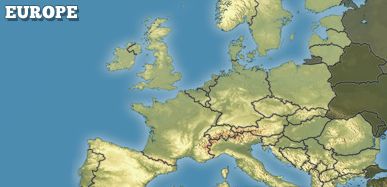
Europe
During the fourth quarter, the eurozone will use tools created over the
past months to temporarily contain the financial crisis in Europe and ensure
the survival of the currency union. At the same time, the political elite will
discuss deeper integration of the eurozone in an attempt to tackle the European
Union's deeper structural crisis. However, no concrete results on these
long-term plans will be achieved in the fourth quarter due to differing
national interests.
Bailouts in Spain and
Elsewhere
The technical details of the Spanish bank bailout that were
provisionally agreed upon during the summer will be finalized during the fourth
quarter. Additionally, to suppress borrowing costs and ensure that Spain is not
cut off from financial markets, Madrid will likely sign a formal agreement with
the troika, which comprises the European Commission, the European Central Bank
and the International Monetary Fund. This agreement will provide the Spanish
government with access to further financial aid if necessary and allow the
European Central Bank and the eurozone’s permanent bailout fund, the European
Stability Mechanism, to suppress Spanish borrowing costs by purchasing Spanish
bonds. Prior to an agreement, Madrid will attempt to minimize the conditions imposed
on it by announcing additional austerity measures in exchange for financial
assistance.
Other eurozone countries that may need similar aid in the future or that
want to renegotiate bailout terms, such as Italy and Ireland, will be watching
closely to see how Spain negotiates the pre-emptive aid and bank bailout.
Though it is unlikely that Italy will require similar treatment during the
fourth quarter, the country’s political instability will increase and the
reform efforts will slow down as the parties that have supported the
technocratic government thus far prepare for the elections set for the first
quarter in 2013.
Greece, Portugal and Ireland, which have already received bailouts, will
be given access to further financial aid, allowing them to remain in the
eurozone even if they fail to meet some of their initial bailout conditions.
Cyprus will use negotiations on a Russian bailout to try to the improve terms
of a prospective EU bailout, but the Russian aid alone will not suffice. Cyprus
will become the fourth country to receive a bailout under the troika’s
supervision, with the primary goal of supporting Cypriot banks.
The Eurozone's Structural
Problem
The ongoing economic crisis will dominate discussions at the monthly EU
ministerial and heads of state meetings. EU officials and member countries will
debate proposals aimed at overcoming the eurozone's structural problems and
centralizing oversight, but no concrete measures will be implemented during the
quarter. Talks will likely center on the creation of a potential banking,
fiscal and political union; the structure of the EU budget for 2014-2016; and
potential changes to the EU treaty. Debates over these issues will demonstrate
how differing national interests are exacerbating the divide between eurozone
and non-eurozone members, prolonging Europe's crisis.
While members of the political elite manage the financial crisis in the
near term and debate long-term structural reforms, popular discontent
throughout Europe will grow. In countries with high unemployment, such as
Greece, Portugal, Spain and Italy, we can expect to see protests, strikes and
discord within government coalitions as spending cuts for the 2013 budgets are
decided. This discontent will slow the implementation of structural reforms,
but is unlikely to cause the collapse of any government in the European core.
Germany will continue to be the strongest advocate for centralized
supervision and austerity in overcoming the crisis. However, Berlin will
continue to accept a relaxation of austerity measures in troubled eurozone
countries and will not derail further bailout efforts. This paradox will lead
to conflict within Germany's conservative governing coalition, especially as
parties start positioning themselves for the parliamentary elections set for
September or October of 2013.
French President Francois Hollande will be forced to apply unpopular
austerity measures that contradict his campaign promises. Though the austerity
measures will be unpopular, they will still be approved at the parliamentary
level. However, on a Europe-wide level, Hollande will argue for less austerity
and will show skepticism toward Germany's plans to overcome the European
Union's structural crisis.
To shift attention away from domestic economic problems, the French
government will highlight France's role on the international stage. Paris will
continue to be the strongest European supporter of an international military
intervention in Syria, in part to reassert influence in its former colonial
sphere in the Mediterranean basin. However, France's efforts will not have a
decisive impact this quarter due to the complexity of the conflict, a lack of
U.S. interest in deepening its involvement, and continued fissures within the
Syrian opposition. On the diplomatic level, France will try to help the Syrian
opposition consolidate its leadership and work with other Western countries to
create the conditions for further defections in the hopes of accelerating the
fall of Syrian President Bashar al Assad's regime.
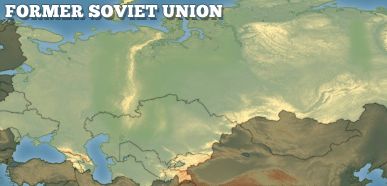
Former Soviet Union
Moscow's Internal Challenges
Moscow's domestic challenges will grow this quarter. The Kremlin has
already struggled with social unrest and major economic shifts stemming from
international uncertainty. During the fourth quarter, these issues and others
will test the Kremlin's political consolidation and stability.
A string of regional and municipal elections will take place across
Russia in October. These will be the first direct regional elections since
2004. Regional elections are critical in Russia, since the Kremlin counts on
regional heads to maintain its influence across the vast country. It is not
certain that the ruling United Russia party will win in the elections since
opposition parties have a strong presence in some key regions. The Kremlin has
made progress in countering the opposition, but success is not guaranteed and
the Kremlin could see a weakening of support across the country.
Ethnic tensions, which arose unexpectedly in the third quarter, will
also continue to occupy Moscow's attention. A shift toward intra-Islamist
fighting (as opposed to Islamists fighting the Russian government) is taking
place. This has been seen not only in the traditionally unstable Caucasus
republic of Dagestan, but also the quiet region of Tatarstan. Tensions have
also been rising between Chechnya and Ingushetia, and the Kremlin has been
working to keep them from escalating into open conflict. Concurrently,
increasing anti-Muslim sentiment has led to the formation of dozens of
vigilante groups across the country. To counter these ethnic and religious
tensions before more significant violence breaks out, the Kremlin is now trying
to adjust its policies with a new law on religious and social tolerance.
In addition to facing elections and social issues, the Kremlin will be
finalizing a highly contentious federal budget for 2013-2015. The budget will
cut federal spending on social programs while maintaining current defense
spending levels. The cuts to social programs could spark more protests during
the election season but the government is preparing its internal security
apparatus for more stringent crackdowns. Moreover, simply maintaining current
defense spending levels will curb the Kremlin's ability to modernize the
military in the longer term, which Russia needs in order to secure its
influence in the region.
The Kremlin would be able to deal with each of these challenges
individually with little difficulty, but the fact that they are all occurring
simultaneously may prove problematic amid other external demands on the
government's attention.
The Russian Periphery
The Kremlin is shifting from a relatively aggressive resurgence in the
former Soviet periphery to a more balanced policy focused on the preservation
of Russian power over the longer term.
In the Baltics, Russia’s position in regional energy markets will
continue to weaken as these countries progress in their plans to diversify away
from Russian energy and proceed in their legal challenges against Gazprom. In
Central Asia, Russia will continue to see tensions grow with Uzbekistan.
Uzbekistan left the Collective Security Treaty Organization earlier in 2012 and
has been looking into building security ties with other external powers, such
as the United States and China, as well as European countries like Poland.
These talks could make some progress in the fourth quarter, though a major
military deal is unlikely this year.
Russia’s position may strengthen in Ukraine, which will hold
parliamentary elections in October. Russia has tried to maneuver itself to
secure a stake in Ukraine’s natural gas transit system, but due to the issue’s
political sensitivity, no deal is expected to be reached during election
season. After the elections are held, however, Ukrainian President Viktor
Yanukovich could gain some political capital to strike an agreement with Russia
in the energy sphere. But many obstacles remain, and Yanukovich will look to
extract as many concessions as possible from Russia (such as lower natural gas
prices and other economic incentives) while giving away as little as he can.
Russia's Relations with the
West
Russia's relationship with the West will remain complicated as tensions
with the United States grow and new disagreements with Europe emerge.
Relations with the United States will continue to be tense due to trade
and diplomatic issues, though Washington and Moscow will both be preoccupied
with elections at home. In the third quarter, Russia was forced to reassess its
position on Syria, a key pressure point it used with Washington. Russia could
exploit the stalemate in Syria in the fourth quarter to maintain a stake in the
negotiation over the country's transition. Russia will likely be more reserved
in openly defying the West on Syria this quarter, but Moscow will maintain its
influence over al Assad's regime through possible oil shipments, weapons sales
and loans.
Russia's larger problems with the West are in Europe, where Central
European countries are trying to undermine Russia's energy leverage on the
Continent. Moscow recognizes that its energy presence in Poland and the Baltics
is declining, but it will not be without options as it accelerates plans for
new pipelines and looks for deals with other countries. In the fourth quarter,
Russia will be able to manage the EU legal push against Gazprom's assets while
it works on long-term deals with strategic energy partners for the future, such
as Bulgaria and Croatia.
Central Asia
Central Asia will see its regional security environment worsen as
numerous countries in the area continue to experience protests, border
skirmishes, violence and militancy in the fourth quarter. Militancy in Central
Asia is driven by complex motivations resulting from a combination of
religious, political and social factors. For instance, the militancy that has
occurred in Kazakhstan appears to be largely spurred by Islamist groups and
actors, while violence in Tajikistan has been more socially or politically
motived. Kyrgyzstan and Uzbekistan have also seen instability to a more limited
degree, but unrest in these countries could also rise during the fourth
quarter.
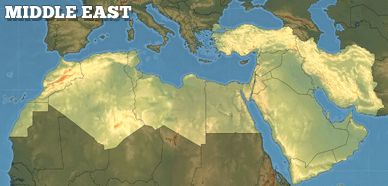
Middle East/North Africa
The Arab Spring, Phase Two
Though civil war continues in Syria, much of the Middle East’s attention
has shifted away from overthrowing unpopular regimes to the contentious issue
of defining the political values of weak, newly democratic states. Islamist
forces, both moderate and radical, will try to shape the political evolution of
states in the region, especially those that have undergone some degree of
political transformation since the Arab Spring began in the fourth quarter of
2010, namely Libya, Egypt, Tunisia and Yemen. The lack of institutional control
in many of these states will allow a variety of political forces to exploit
anti-U.S. (and anti-Israeli) sentiment in the streets. While this trend is
unlikely to translate into transnational jihadist activity on the scale al Qaeda
achieved in the early 2000s, localized mob violence, political protests and
sporadic attacks will characterize this new phase of the Arab Spring and expose
the limitations of U.S. influence in the region.
Iran-U.S. Competition
Regional tensions over Iran will remain high through the quarter. In
spite of its continued threats, Israel is unlikely to risk a unilateral strike
against Iran, and the United States does not have the appetite for such a
military engagement. However, Israel will use the politically sensitive
presidential election season in the United States to try to extract security
guarantees on a potential coordinated strike in the future. An underlying
U.S.-Israeli disagreement over what constitutes a "redline" for a strike
will hamper Israel's efforts in this regard.
The United States will put off the question of a strike through further
demonstrations of its military capabilities in the Persian Gulf and a sustained
economic warfare campaign against Iran. Though the sanctions are not airtight,
the regime's struggle in managing the depreciation of the rial will agitate the
country's critical merchant class, thereby threatening to provide momentum for
wider social unrest. The Iranian government will deploy a heavy security
presence to enforce a stricter currency regime with traders and to contain
potential unrest, but the growing economic stresses will continue to drain
foreign exchange reserves while also widening regime fissures.
Iran will not be sufficiently threatened by such pressure tactics to
alter its position on the nuclear issue this quarter, but it could try to
engage the United States (using Turkey as a possible mediator) regarding Syria.
Limited concessions may be aired in backchannel talks as Iran tries to shape
the negotiations over a post-al Assad transition in Syria and to preserve a
political space for its Lebanese proxy Hezbollah in the long term. Iran will
use the current stalemate in Syria to explore this dialogue with Washington,
but political constraints on both sides will likely prevent more substantial
negotiations from developing.
The Syrian Conflict
The Syrian uprising has turned into a war of attrition, with neither
side able to deliver a decisive blow. The country’s demographics and continued
desertion by government soldiers favor the rebels over time, but that does not
mean the conflict will be resolved swiftly. The rebels simply do not have the
heavy weapons and equipment necessary to rapidly break through regime defenses
and will continue to rely on striking at regime supply lines, carrying out
targeted attacks and assassinations and gradually eroding the strength of
regime forces. The Syrian regime is weakening but is unlikely to collapse by or
before the end of 2012.
The longer the war lasts, the higher the probability that Syria will
experience a “Lebanonization,” which could ultimately
see the al Assad regime and the Alawites devolve into just another clan among
many fighting from a regional position rather than as a national entity. Clan
rivalries will meanwhile deepen in Lebanon as each faction prepares for a
transition in Syria, but bold moves are unlikely, at least until the collapse
of the Syrian regime appears imminent. Hezbollah, in particular, will be
cautious in dealing with its adversaries in Lebanon to avoid a premature
conflagration.
Overt foreign intervention in Syria appears unlikely this quarter. The
United States will try to avoid a leading role in influencing a political
transition in Syria and instead attempt to get regional stakeholders, including
Turkey and France, to take more responsibility in the effort to remove the al
Assad clan from power.
Turkey's Constraints
Turkey's strategy of relying on relationships within Iraq's Kurdistan
Regional Government to contain the wider threat of Kurdish separatism will
falter this quarter. The Syrian regime, Iran and their political allies in
Baghdad will make a concerted effort to push back against Turkey in both Syria
and Iraq. In northwestern Syria, Turkey could be compelled to use more direct
military force in trying to contain Kurdish separatists linked to the Kurdistan
Workers' Party. In Iraq, Baghdad's efforts to re-engage the Kurdish north in
energy negotiations will counteract the Kurds' growing economic dependence on
Turkey. The Shiite-led government in Baghdad will also try to use its
legislative powers to prevent Turkey from continuing its limited military
presence in the Kurdish north to weaken Turkey's footprint there. The
constraints Ankara faces abroad will intensify domestic pressures at home, as
the ruling party struggles to avoid appearing impotent in its foreign policy,
yet lacks the means to deal decisively with the Kurdish threat.
Egypt’s Challenges
Egypt’s shrinking foreign reserves and limited access to foreign
financing along with fuel shortages will add urgency to the government’s
efforts to bring in investment and aid. As Egypt’s economic desperation grows,
President Mohammed Morsi will find it increasingly difficult to stave off
unpopular policies that could cost the Muslim Brotherhood some political
credibility, including imposing new taxes, reducing subsidies and possibly
devaluing the Egyptian pound.
Internal political jockeying will increase as candidates across the
political spectrum position themselves for new parliamentary elections,
tentatively scheduled to take place by the end of the year. At the same time,
Egypt’s competing political forces will struggle to meet a deadline on issuing
a final draft of the new constitution, which is scheduled for a national
referendum this quarter. The draft is already facing challenges in court that
could hamper the Muslim Brotherhood’s efforts to curtail the powers of the
military and expand the role of the parliament. Dramatic clashes between the
Morsi government and the military are not likely to take place this quarter,
but negotiations over the official division of powers will intensify.
Domestic issues will take priority this quarter, but the Brotherhood-led
government will slowly work toward rebuilding a regional leadership role for
Egypt through support for its Islamist counterparts in Syria, the Gaza Strip
and Jordan. Egypt will also use its budding relationship with Iran to garner
regional attention. The Egyptian government will publicly remain adversarial
with Israel for the sake of maintaining popular support but will not take any
meaningful steps to breach its peace treaty with Israel this quarter and will
quietly continue security cooperation with Israel in Sinai.
The Jordanian Monarchy's
Struggle
Political unrest in Jordan will intensify this quarter as the various
interest groups that constitute the country's opposition exploit the monarchy's
position amid the worsening economic situation to enhance their political
clout. Emboldened by the rise of its Islamist counterparts in Egypt and Syria,
the Jordanian Muslim Brotherhood will push its reform agenda while seeking a
greater role in the parliament and the government. The monarchy will continue
to offer limited concessions and try to play the country's various stakeholders
-- tribal East Bankers, the Palestinian entrepreneurial class and urban
Palestinians -- off each other to avoid losing authority. The level of social
agitation in Jordan is entering a more serious phase, since the opposition will
show less political restraint than before in its protests against the monarchy.
However, both sides of this political standoff are not prepared to shun
negotiations at this stage.
Internal Divisions in Libya
The Libyan government based in Tripoli will try to demonstrate an ability
to control internal security through attempts to rein in armed groups and build
cooperation among a severely fractured political and security leadership. Some
progress toward this end is likely, but the attempt to neutralize local
militias will spur retaliation from fringe groups that are sidelined from deal
making in Tripoli, as well as jihadists who are trying to retain sanctuary in
the east. Attacks against government targets and energy infrastructure are thus
more likely in the fourth quarter. And with the government focusing on
militias, there is a greater potential for disputes and armed conflict between
African tribal populations and the Arab groups favored under Moammar Gadhafi’s
regime.
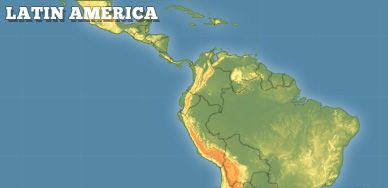
Latin America
Brazil’s Looming Reforms
The end of the municipal campaign season soon will free up political
parties to address national-level policy questions. These include a likely vote
in the lower chamber of parliament on a bill that will redistribute oil
royalties from producer states like Sao Paulo and Rio de Janeiro to states with
less oil production. Although the oil royalties bill has been vetoed in the
past, the Brazilian government is making a push to issue oil concessions as
soon the bill is passed, which is driving negotiations over the final outcome
of the bill. Without a bill in place, the oil concessions, which would likely
not be offered until 2013 at the earliest, will not be issued.
The government will push hard to maintain the value of Brazil’s currency
in the fourth quarter and may consider increasing the tax on financial
transactions. With concerns rising over the possible long-term decline in
Chinese consumption of raw commodities, Brazil’s strategic objective is to
boost its inefficient manufacturing sector by maintaining a favorable exchange
rate for exporters. Along these lines, Brazil will continue implementing
financial aid packages for the manufacturing sector, which have been announced
throughout the year.
Domestic Unrest in Argentina
Public unrest will be frequent and widespread throughout Argentina in
the fourth quarter, particularly in October. In addition to simmering
provincial disputes that could spur unrest in Cordoba, Buenos Aires, Neuquen, Santa Cruz and Santa Fe, factions of the General
Confederation of Labor, the Agrarian Federation and the Argentine Workers'
Central Union plan to hold a nationwide protest Oct. 11. On Oct. 27, a
pro-government political group known as United and Organized plans to have a
rally in Buenos Aires city that will coincide with the anniversary of the death
of former Argentine President Nestor Kirchner. The gathering is also intended
as a response to nationwide anti-government protests in September. Beyond the
scheduled protests, unrest can be expected throughout the quarter.
News coverage of those protests has led to a confrontation between media
group Clarin and the government. The government has announced a Dec. 7 deadline
for Clarin to auction off media assets in compliance with 2009 anti-monopoly
legislation. The issue will aggravate the already poor relationship between the
government and Clarin, and the news organization could draw attention to the
issue to undermine the government's popular support.
In the energy sector, the government will continue efforts to assert
more control in an attempt to boost hydrocarbon production and regulate prices
in the fourth quarter. The government will court international investment but
is unlikely to receive commitments without a significant shift in the
regulatory environment. In the absence of foreign commitments, the government
will more seriously consider options to domestically finance the sector.
Mexico’s New President
Mexico’s fourth quarter will be dominated by the inauguration of
President-elect Enrique Pena Nieto on Dec. 1. Pena Nieto will take office
determined to define his presidency by reforms in major regulatory sectors and
has used the months since the election to build cooperation with the outgoing
National Action Party on those issues.
Already, momentum is building behind a labor revision that appears
likely to pass the legislature’s upper chamber before Pena Nieto’s Dec. 1
inauguration. Although the version of the law presented by the National Action
Party will likely be revised before its passage, the generally high level of
support behind it indicates recognition across the political spectrum that
several issues must be addressed if the country is to maintain economic growth
and continue attracting international investment.
Though the details are not yet settled, the Pena Nieto administration
plans to present a proposal in the early weeks of the administration for
reforms to the energy sector. Ultimately, Mexico will have to determine how to
encourage the introduction of foreign capital and technologies into developing
oil and natural gas deposits within Mexico despite constitutional restrictions
on foreign mineral ownership. The fourth quarter will see significant progress
toward a plan that will not be passed into law until 2013.
Colombia's Talks With Rebels
The Colombian government will begin talks with the Revolutionary Armed
Forces of Colombia during the fourth quarter in Oslo, Norway. The talks, which
are eventually slated to move to Cuba, can be expected to drag out through the
quarter without substantial agreements. In the meantime, conflicts between the
government and the rebel group can be expected to continue, with rebel
operations specifically targeting critical mineral extraction infrastructure,
although these attacks will likely be less intense than in the first quarters
of 2012.
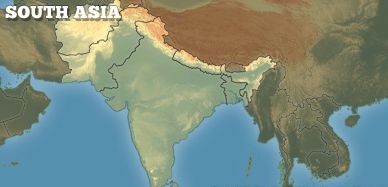
South Asia
Afghanistan Looks at a
Post-U.S coalition. Future
The United States will work toward integrating the Afghan and Pakistani
governments into negotiations with the Taliban in the hopes of breaking a months long impasse. Greater Pakistani involvement in the
negotiations, along with increased Pakistani-Afghan coordination, will likely
help spur the process along, but a number of complications remain. These issues
include the regional climate in the wake of riots targeting Western interests
over a controversial anti-Islamic film, the U.S. presidential election, security
threats in Pakistan, Iranian interference in Afghanistan, and perhaps most
important, a growing perception in the region that the United States is weak
and without options in the negotiation.
No major shift is expected on the battlefield this quarter. After
completing the withdrawal of surge forces, the International Security
Assistance Force will find it difficult to mount major offensive operations in
the winter, which will provide insurgents with greater room to operate and will
lead to a deteriorating security situation overall. The gradual transition from
U.S.-led to Afghan-led security operations will be hampered by persistent
insider attacks that fuel mistrust and expose U.S. intelligence deficiencies.
In the fourth quarter, fighting will continue but we will see the typical
decrease associated with the winter season as weather becomes a constraint.
Pakistan Eyes New Partners
Islamabad is seeking to change its approach to Afghanistan by expanding its
influence beyond the Taliban movement to include anti-Taliban minority groups
and elements in Afghan President Hamid Karzai’s administration, as well as
diversifying its bilateral ties to compensate for its deeply strained relations
with the United States. Pakistan will spend the fourth quarter building on its
efforts to enhance ties with the Afghan, Indian and Russian governments in
hopes of achieving some form of settlement in Afghanistan ahead of the 2014
drawdown of NATO forces. Progress on improving ties is unlikely, especially
given Russian President Vladimir Putin’s delay of his planned Oct. 2-4 trip to
Pakistan and the immense domestic challenges faced by Indian Prime Minister
Manmohan Singh, which will constrain New Delhi’s ability to normalize relations
with Islamabad. Domestically, Pakistan’s political parties will begin
campaigning heavily for the general elections currently slated for March 2013.
India's Governing Coalition at
Risk
India's ruling United Progressive Alliance's campaign for economic
reforms and the management of ensuing political and economic pushback will
dominate India's domestic situation in the fourth quarter.
The alliance now leads a minority coalition government, opening up the
possibility that Prime Minister Singh (who belongs to the Congress Party) and
his Cabinet could be removed through a vote of no confidence. The main
opposition party in the parliament, Bharatiya Janata
Party, has for now publicly distanced itself from calling for a motion of no
confidence to bring down the government. More important, the various smaller
parties whose votes are crucial to granting either the Congress Party or Bharatiya Janata Party a majority coalition government are
themselves divided and unlikely to fully divest from the governing coalition or
support the Bharatiya Janata Party, decreasing the
likelihood that a no-confidence vote would succeed. Cabinet changes expected
for mid-October should reveal the Congress Party's new coalition partners and
may introduce new leadership candidates into the party's aging internal
organizational structure. This focus on domestic politics will preoccupy the
central government and make any serious movement on foreign policy unlikely.
The government will avoid several anticipated reforms this quarter.
Subsidy reductions on staples such as sugar, cooking oils and other subsidized
goods widely consumed by the middle and lower classes -- especially during the
Diwali holiday season -- would create public backlash against the ruling
coalition government that opposition parties could capitalize on. Any economic
reforms undertaken during this period are likely to either be in areas
dominated by the central government (such as utilities and nuclear power) or
consist of devolving power to the state level, including the option for
individual states to opt out of contentious reform initiatives, even if this
reduces the reforms' overall effectiveness.
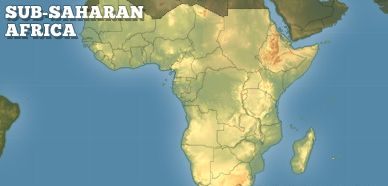
Sub-Saharan Africa
Sub-Saharan Africa will see a sustained effort to contain militancy in
two key areas. One effort will focus on al Shabaab in
Somalia while the other will target al Qaeda in the Islamic Maghreb and its
jihadist affiliates in Mali.
Offensive in Somalia
African Union peacekeepers will establish forward operating bases in the
principal cities of southern Somalia: Mogadishu, Baidoa, Afgoye
and Kismayo. Military forces from Kenya, Uganda, Ethiopia and other African
countries will use intelligence and logistical assistance from the United
States to coordinate their operations against al Shabaab.
Al Shabaab will fall back to Somalia’s
southern interior while trying to attack allied supply lines, retain forces in
urban areas (including Mogadishu), and conduct hit-and-run guerrilla attacks
against African Union forces and Somali government positions. Though these
operations will not dislodge the African Union peacekeepers, the attacks and
the Somali government’s lack of institutional capacity will hamper the ability
of a newly elected administration to deliver services.
Jihadist Activity in Mali
Al Qaeda in the Islamic Maghreb and allied Malian and North African
jihadists will lead a defensive campaign to preserve their control over
northern Mali. Military forces in neighboring countries -- particularly
Algeria, Mauritania and Niger -- will conduct border operations against al
Qaeda in the Islamic Maghreb and its allies to prevent the jihadists from
expanding their attacks into other areas.
Western countries, particularly the United States and France, will
provide intelligence to assist Mali's neighbors in blocking jihadists from
conducting extraterritorial operations from northern Mali. Malian military
forces will also begin to enter northern Mali in the fourth quarter with the
aim of establishing a presence in the key northern cities of Kidal, Gao and
Timbuktu as a larger, Western-backed African peacekeeping force is mobilized.
However, a Malian government presence comprising government administrators and
security forces will not dislodge militants from these cities. Patronage
activities to incorporate moderate Tuareg militants into government programs
will be initiated as a way to divide and reduce the appeal of the jihadist
rebellion.
Power Struggle in South
Africa's Ruling Party
South Africa's ruling African National Congress will hold a leadership
convention in December. The party's dominance of South African politics means
that its leader is certain to become the next president in the national
election set for 2014.
Incumbent President Jacob Zuma is running for re-election to a second
five-year term. A rival leadership bloc led by Deputy President Kgalema
Motlanthe and including other African National Congress officials of the
Northern Sotho ethnic group will try to mobilize enough voters to challenge
Zuma through labor strife and patronage promises. However, this rival bloc will
be constrained by internal disagreements over how and whether to share power
outside its narrow ethnic interests. Zuma will tap into his existing base of
supporters and counter the bloc's moves with patronage promises of his own,
making his re-election likely.
For updates click homepage
here